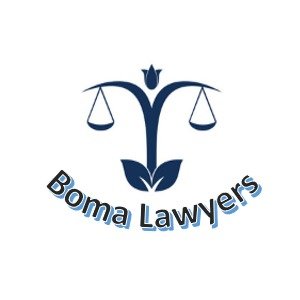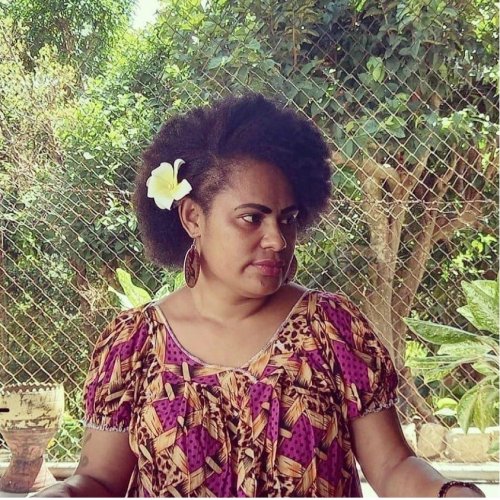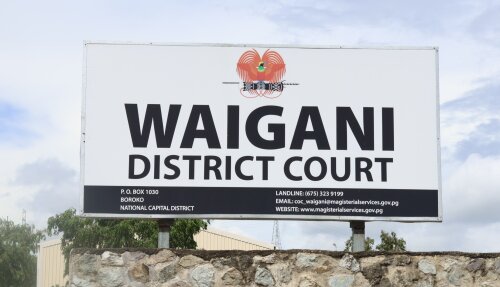Best Ethics and Professional Responsibility Lawyers in Port Moresby
Share your needs with us, get contacted by law firms.
Free. Takes 2 min.
List of the best lawyers in Port Moresby, Papua New Guinea
About Ethics and Professional Responsibility Law in Port Moresby, Papua New Guinea
Port Moresby, the capital city of Papua New Guinea (PNG), hosts a vibrant professional community bound by local laws concerning ethics and professional responsibility. These laws are designed to maintain integrity, transparency, and accountability within various professions. They guide professionals such as lawyers, doctors, and public officials in maintaining high standards of practice. This area of law seeks to ensure that professionals perform their duties in accordance with established ethical standards, significantly impacting client relations, public dealings, and the overall trust in professional entities.
Why You May Need a Lawyer
Engaging a lawyer for ethics and professional responsibility issues might become necessary under several circumstances, including:
- Facing allegations of professional misconduct or unethical behavior.
- Handling disputes regarding breaches of professional responsibility.
- Seeking advice on complying with ethical standards in your field.
- Ensuring that your professional practice aligns with local regulatory requirements.
- Encountering reporting obligations for unethical behavior or malpractice.
Lawyers specializing in this field can provide valuable guidance and representation in investigations, hearings, and appeals related to professional conduct matters.
Local Laws Overview
In Port Moresby, ethics and professional responsibility are governed by a mix of statutory laws, professional codes of conduct, and customary laws. Key aspects include:
- The Legal Profession Act governs the legal practitioners in PNG, ensuring that lawyers adhere to rigorous ethical standards.
- Professional bodies, such as the Papua New Guinea Medical Board and Accountants Institute, implement strict codes of ethics that members must follow.
- Anti-corruption laws are enforced to tackle unethical practices in the public sector and shield the integrity of governance.
- The Ombudsman Commission plays a pivotal role in overseeing government officials’ conduct, ensuring compliance with ethical norms.
These legal frameworks are in place to uphold the accountability and responsible conduct expected of professionals in various fields.
Frequently Asked Questions
What does a professional conduct investigation involve?
Investigations typically assess allegations of ethical violations, collecting evidence, interviewing witnesses, and conducting hearings to determine if misconduct occurred.
Can I represent myself in a professional responsibility hearing?
While self-representation is technically possible, it is advisable to engage a qualified legal professional due to the complex nature of such cases.
How are ethical breaches penalized?
Penalties range from formal reprimands to temporary suspension, or even revocation of professional licenses, depending on the severity of the breach.
Is there a statute of limitations for filing complaints about professional misconduct?
The timeframe for submitting complaints varies depending on the specific profession. It's crucial to check relevant guidelines for each professional body.
How can I ensure my practice complies with ethics laws?
Regularly consult the guidelines issued by relevant professional bodies, conduct internal audits, and seek legal advice as needed to ensure compliance.
What role does the Ombudsman Commission play?
The Ombudsman Commission oversees public sector integrity by ensuring leaders and officials adhere to ethical guidelines and that any misconduct is investigated.
Can I file an anonymous complaint regarding unethical conduct?
Yes, many professional bodies have mechanisms to allow anonymous reporting while protecting the identity of the complainant.
What is the process for appealing a decision made in a professional conduct case?
Appeal procedures differ by profession. Typically, an appeal involves submitting a formal request to the relevant board or authority for review.
How does cultural context influence ethics laws in PNG?
Customary laws and cultural practices can intersect with statutory laws, influencing decision-making and ethical standards in various professional contexts.
Is continuing legal education required for maintaining professional standards?
Yes, many professions, including law, require ongoing education to ensure practitioners stay updated on ethical standards and laws.
Additional Resources
Several resources and organizations can be helpful for those seeking advice in ethics and professional responsibility:
- The Papua New Guinea Law Society: Offers support and resources for legal practitioners.
- The Ombudsman Commission: Oversees ethical conduct within the government and public sector.
- Professional Boards: Such as the Medical Board and Accountants Institute, provide guidelines and support for their members.
- Transparency International PNG: Offers resources related to anticorruption and ethical governance.
Next Steps
If you need legal assistance in the field of ethics and professional responsibility, consider the following steps:
- Identify the specific issue or concern you face related to professional ethics.
- Contact a lawyer specializing in professional responsibility for a consultation.
- Prepare any relevant documentation or evidence related to your case.
- Consult with professional bodies related to your field for specific support and guidance.
- Consider using public legal resources or pro bono services if cost is a concern.
Taking informed and proactive steps can help you effectively address any ethical and professional responsibility issues you may encounter in Port Moresby, Papua New Guinea.
Lawzana helps you find the best lawyers and law firms in Port Moresby through a curated and pre-screened list of qualified legal professionals. Our platform offers rankings and detailed profiles of attorneys and law firms, allowing you to compare based on practice areas, including Ethics and Professional Responsibility, experience, and client feedback.
Each profile includes a description of the firm's areas of practice, client reviews, team members and partners, year of establishment, spoken languages, office locations, contact information, social media presence, and any published articles or resources. Most firms on our platform speak English and are experienced in both local and international legal matters.
Get a quote from top-rated law firms in Port Moresby, Papua New Guinea — quickly, securely, and without unnecessary hassle.
Disclaimer:
The information provided on this page is for general informational purposes only and does not constitute legal advice. While we strive to ensure the accuracy and relevance of the content, legal information may change over time, and interpretations of the law can vary. You should always consult with a qualified legal professional for advice specific to your situation.
We disclaim all liability for actions taken or not taken based on the content of this page. If you believe any information is incorrect or outdated, please contact us, and we will review and update it where appropriate.















